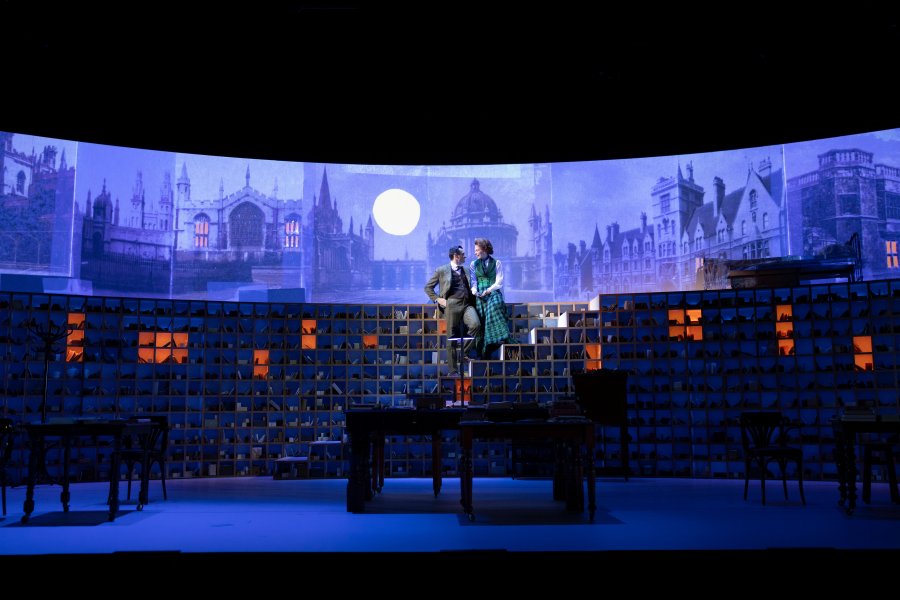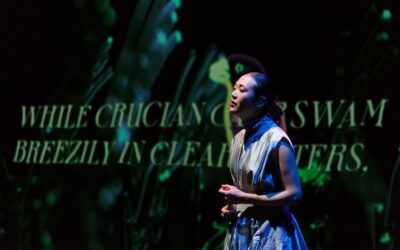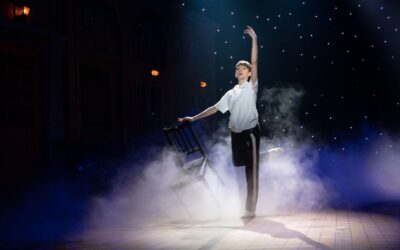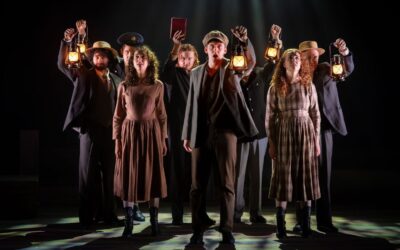By David Gardette
Words have power. Words shape people, culture, and beliefs. The power of words and language not only create the world around us but have the authority to influence society and change. After reading ‘The Surgeon of Crowthorne,’ about the making of the Oxford English Dictionary, Australian Author Pip Williams got to thinking not just about the words IN the dictionary, but more importantly those words left out, words never written down or recorded — and generally these words were associated with women and womanhood omitted by a male dominated society.
In 1886, four-year-old Esme Nicoll sits beneath her father’s worktable in the Scriptorium or ‘scrippy’ eagerly listening to the gentleman lexicographers working to create the first edition of the Oxford English Dictionary (OED) what was then the definitive record of the English language. As the men debate the inclusions, a slip of paper marked ‘incomplete’ falls to the floor and into Esme’s eager hands. Intrigued by the word ‘bondmaid’ (a female slave, a woman bound to service without wages), Esme collects more and more of these discarded ‘incomplete’ words and hides them in a trunk she calls ‘The Dictionary of Lost Words’.
Williams’ New York best seller of the same name has been enchantingly adapted by playwright Verity Laughton and brought to the stage by the Sydney Theatre Company and the State Theatre Company of South Australia. A celebration of the power of words and their ability to shape society, The Dictionary of Lost Words journeys into a fast-changing British society where your class and sex predetermines your lot in life and leads us to the ultimate rise of the suffragette movement.
Under the detailed eye of director Jessica Arthur, we are treated to an excellently crafted production bound together by a charismatic ensemble. With precise direction and intelligent staging, Arthur’s eye for detail is wonderfully clever — transitions between scenes and characters flow effortlessly without hesitation assisted by set designer Jonathon Oxlade’s striking set. Capturing the heart of the 19th Century ‘Scrippy,’ the two-level expanse of pigeonholes filled with ‘stuff’ and vast panoramic cyclorama projecting images to set time and place, is wonderfully atmospheric. The staging design blends well with Trent Suidgeest’s atmospheric lighting and Aisla Paterson’s considered period costuming.
Brenna Harding as Esme Nicoll relishes this gift of a role, transitioning from wide-eyed four-year-old, inquisitive teenager to determined young woman with ease. She pitches just the right youthful charm and innocence. In what could be a daunting role, with our young protagonist in nearly every scene, Harding shines.

As Esme’s widower father and lexicographer Harry Nicoll, Brett Archer exudes a natural fatherly warmth whose love of words and pride in an independent Esme is never questioned. Rachel Burke is wonderful as Lizzie, the family housekeeper who does her best to protect the motherless Esme, but ultimately is the one who reluctantly introduces her to the many characters of the Covered Market, a place where the cities undesirables convene and where Esme is ‘educated’ in the world of lost words.
Amongst the many characters expertly portrayed by Ksenja Logos, ex-prostitute Mabel is a riot. Introducing Esme to the origins of the lost ‘C’ word – hilarious. But it is the arc of the friendship between Mabel and Esme that is particularly moving.
Angela Mahlatjie is a bold Tilda Taylor the actress turned determined suffragette and this ensemble is complete with fine performances from the male cast. Chris Pitman is a delight as enthusiastic lexicographer head Sir James Murray; Carlos Sanson Jr is charming as Esme’s love Gareth and Anthony Yangoyan is a spirited Bill Taylor, Esme’s first suitor. This is a fine ensemble of actors expertly navigating this strong character driven production.
The play is presented with the dedication and attention to detail that matches the cadence and task of creating “Our Dictionary” – the script is delivered with attention to detail and almost feels at times like a beautiful multidimensional audio book. The production is beautiful and holds the audience’s attention, however the 3-hour duration does feel a little longer than the story it tells.
This night at the theatre immersed in words of things lost and importantly things found and preserved, passed on and treasured is highly recommended for those who enjoy the beauty and breadth of language.
Images: Pia Johnson





